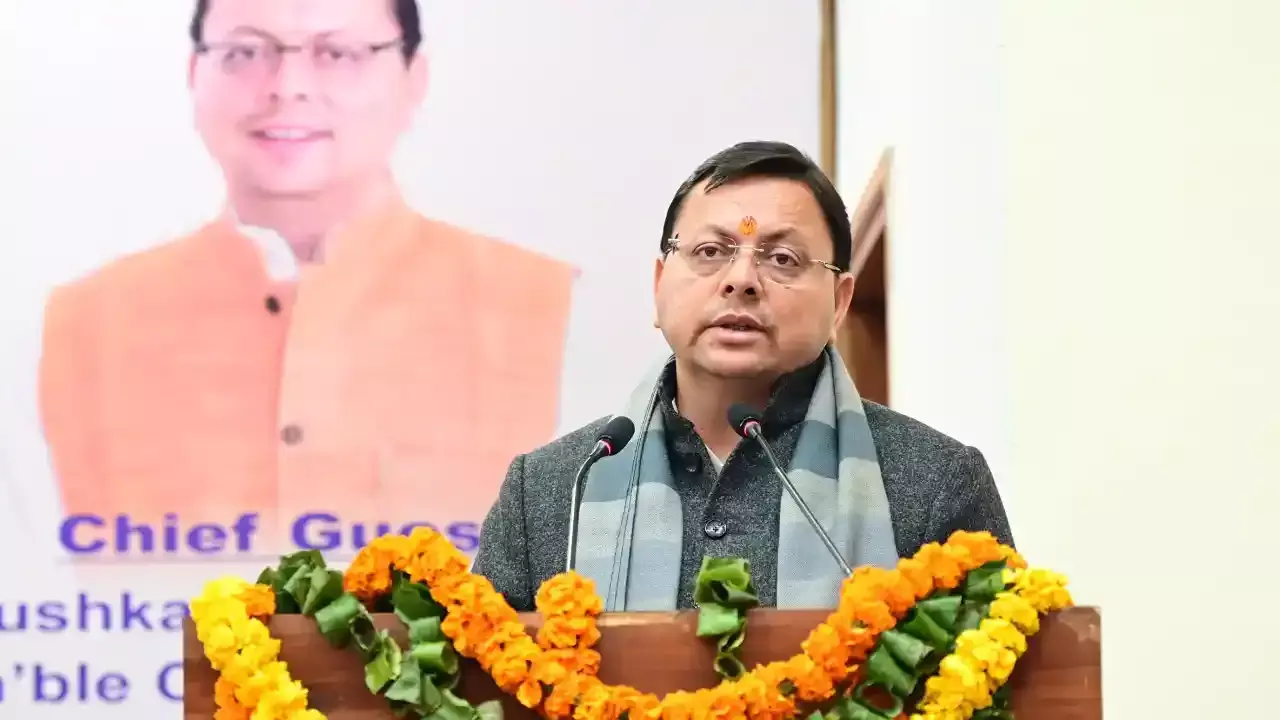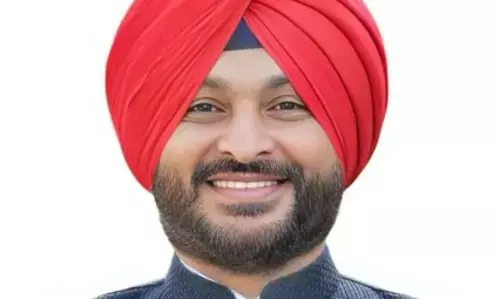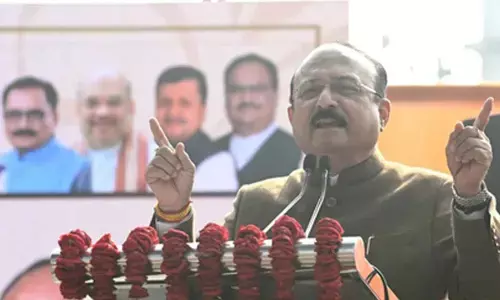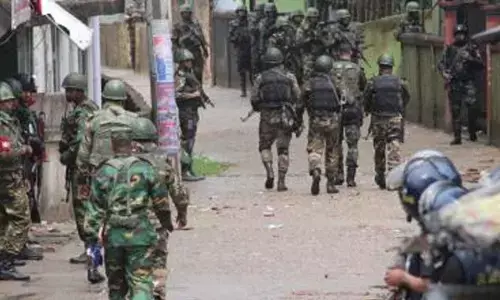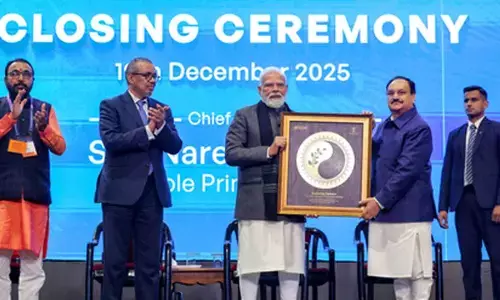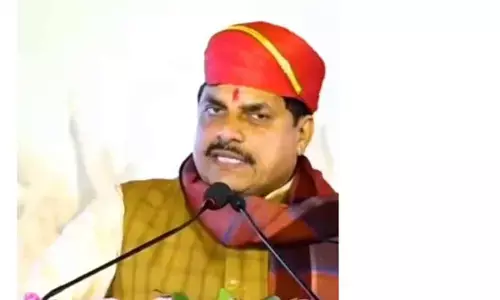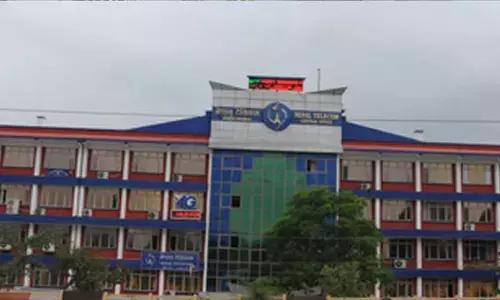The grammar of defections
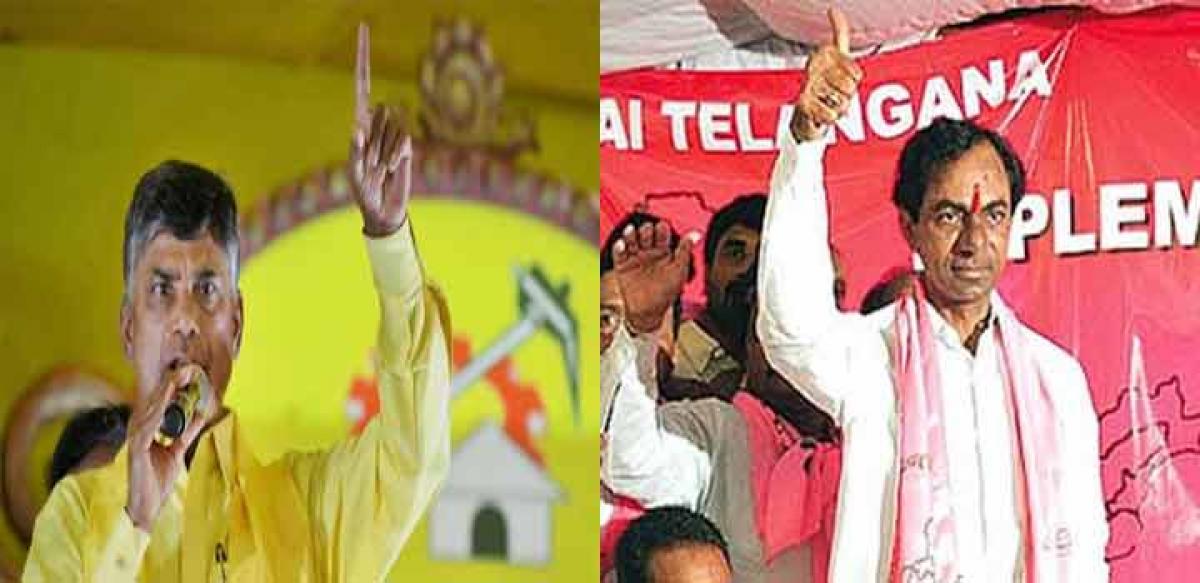
The ongoing spectacle of political defections in Andhra Pradesh and Telangana seems to be an unending saga deliberately executed in periodic episodes. The state of politics in two States acquires the dubious distinction in an otherwise ubiquitous phenomenon in the contemporary Indian democracy. Only the victims and the perpetrators change with each passing election.
The ongoing spectacle of political defections in Andhra Pradesh and Telangana seems to be an unending saga deliberately executed in periodic episodes. The state of politics in two States acquires the dubious distinction in an otherwise ubiquitous phenomenon in the contemporary Indian democracy. Only the victims and the perpetrators change with each passing election.
In the current epoch, the TRS in Telangana and the TDP in Andhra Pradesh are in the driver’s seat with the other parties falling prey to their sordid manoeuvres. But, they are neither the first nor would perhaps be the last in this ugly turn of events.
The TDP calls it a foul play in Telangana, but unabashedly engineers defections with a remarkable frequency in the State where it is in power. The Congress now calls it a butchery of democracy. But, this grand old party was the creator, innovator, entrepreneur, master, all rolled into one in the consummate art of political defections.
Preposterous arguments are dished out before the live television in a frantic bid to defend the indefensible. They say it is for the sake of a golden Telangana or a prosperous Andhra Pradesh, if not, for development of the constituency which one represents.
No monumental works on political science or public administration will find any reference to such politics of development willfully and woefully redefined to orchestrate a cynical view point.
It doesn’t need even basic common sense to comprehend the fact that corruption and power mongering are the motivating factors for switching sides. Political parties have become highly vulnerable, politicians malleable and politics ductile. In the process, democracy has turned servile.
The strategy on both sides of River Krishna seems to be the same and simple. The ruling parties want to manufacture consent by politically decimating opposition to strangulate dissent voices. But history tells us that no individual or party are invincible in politics. The graph is not always upward.
The Congress destabilised the opposition, especially TRS, during its heyday, but could not prevent the fledgling TRS from becoming a formidable force with the former struggling to survive. Jaganmohan Reddy who could attract every other TDP leader a few years ago is now struggling to keep his flock together. All this pooh-poohs the theory of invincibility in politics.
No ruling party can create political vacuum to remain perpetually in power. Demoralised parties, too, display remarkable instincts to come back to power. Naidu and KCR are testimony to this. Their foes could not crush them even when a sizable number of friends deserted them. As they could win the confidence of people, fortunes greeted them.
Development cannot be made hostage to political machinations. Democracy and development cannot work at cross purposes. Politics cannot remain colourless, odorless and tasteless. Disillusionment with democracy will lead to disenfranchisement of masses.
Political culture devoid of values deprives democracy of this core content like plurality of political choices. The anti-defection law urgently needs a comprehensive review. The Speaker’s discretion should be codified as the apex court checked the unbridled exercise of gubernatorial powers. The merger provision in the Tenth Schedule of the Constitution has to be reworked to prevent its subterfuge.








